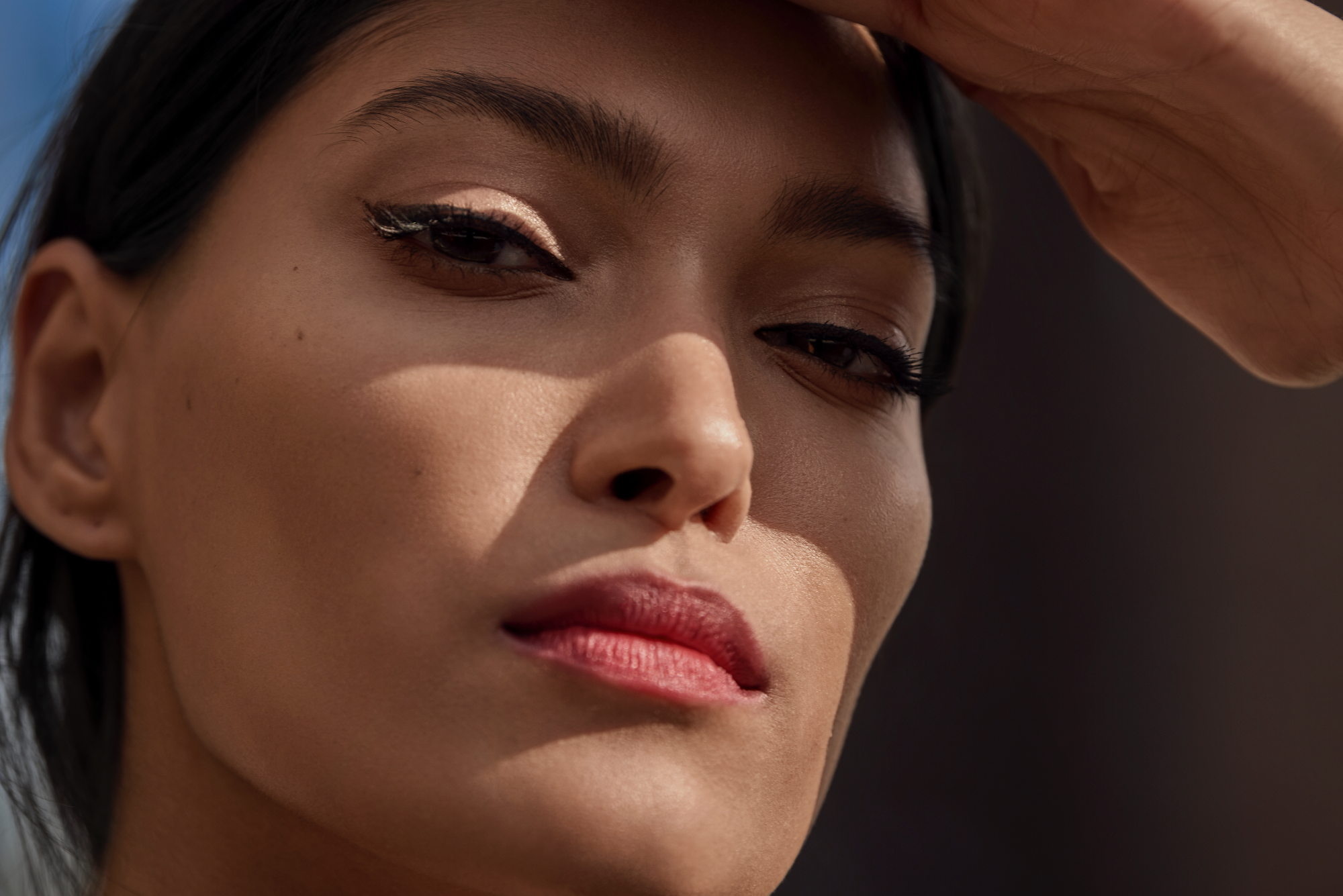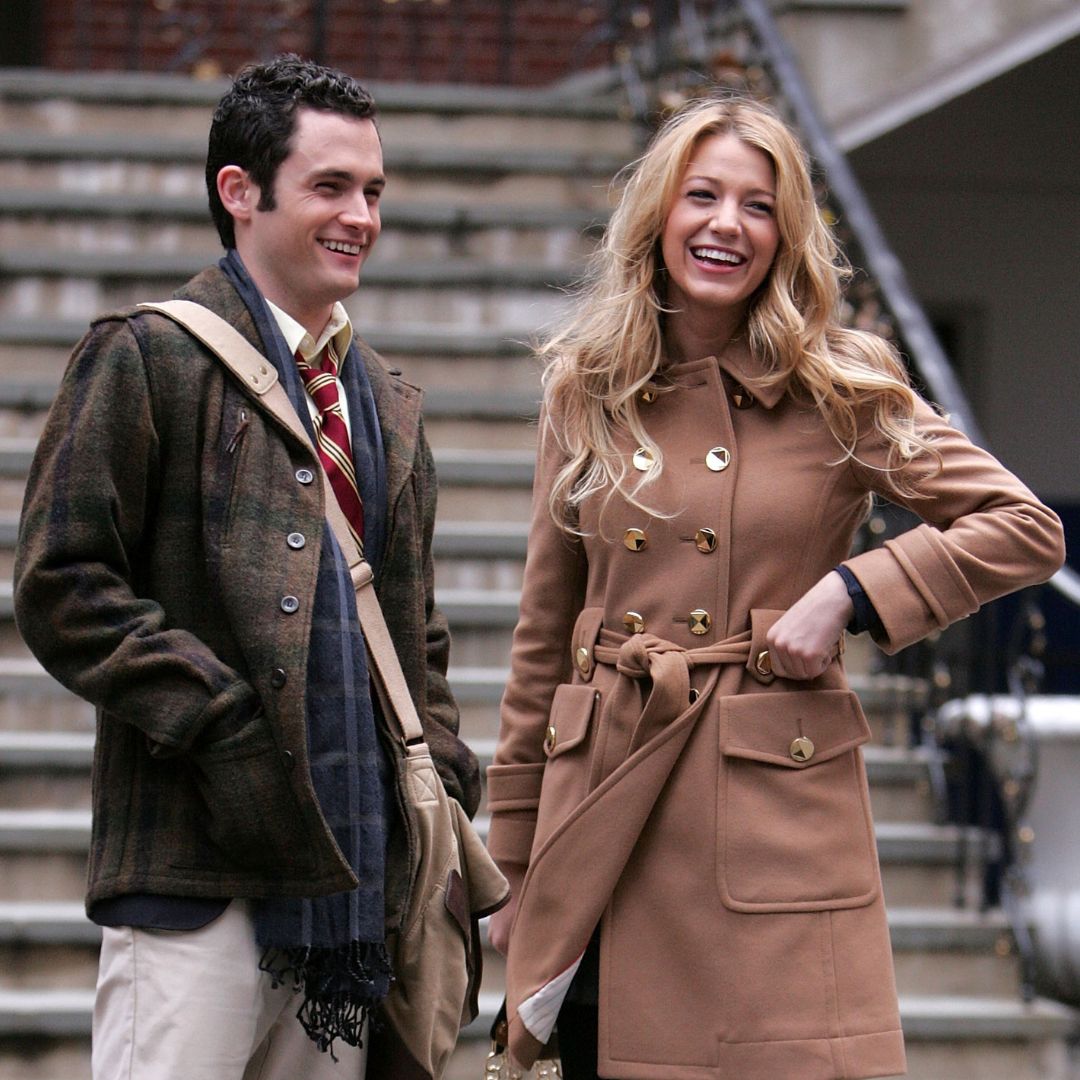Pritika Swarup: 'Women are rewriting the rules'
This IWD, Model Pritika Swarup talks juggling studies with modelling, diversity in fashion and why she decided to set up her own investment fund

This IWD, Model Pritika Swarup talks juggling studies with modelling, diversity in fashion and why she decided to set up her own investment fund
She's one of IMG's busiest models, who has - impressively - found time to study Financial Economics at Columbia University and support charity initiatives like Operation Smile (more on that shortly). Oh, and modelling in one of our latest virtual beauty shoot. Here's what happened when we caught up with multitasking model of the moment, Pritika Swarup.
Do you get nervous before shoots?
At one point I stopped getting nervous. I think when you first start in this industry, you’re thrown into situations. You don’t know what you’re going to be doing and you don’t know the people you’re working with. But you kind of adjust to that and get used to it. And you’re like ‘OK, I’m going to go, be prepared and crush it - regardless of whatever situation I’m in’. I adopted that mindset after a couple of years, so I don’t get nervous before shoots anymore.
How do you prepare mentally?
I take a shower the night before and make sure I’ve taken care of myself. I’m always taking care of my skin. And I try to do a workout either the night before or the morning of a shoot. I always feel like I can take on the world after a good workout, because your body feels so powerful. I try to meditate every morning too. It keeps you balanced and helps clear my mind for the day and whatever it brings.
You’re studying while modelling, can you tell us about that?
I study Financial Economics and my minor is Psychology. This is actually my last semester at Columbia. I was scouted when I was 17, moved to New York and finished my Senior Year of High School in New York while I was developing as a model. Then I took three years off to travel and work and really understand the different markets. And also to figure out what it was from modelling that I wanted.
In what sense?
I think you come into this industry and you’re thrown in. You have to either sink or swim. You have to find yourself as you navigate. Education has always been super important to me. My dad is an eye surgeon and my mum was a chemistry teacher in India, now she’s a yoga instructor. Education was always the number one thing.
Are fellow students excited to have a model in their midst?
I think Columbia has such a diverse range of students and that was always really exciting to me. So I don’t think it was like, ‘Oh, there’s a model in this class’.
Marie Claire Newsletter
Celebrity news, beauty, fashion advice, and fascinating features, delivered straight to your inbox!
Does working as a model and studying economics ever raise eyebrows?
I don’t think it’s out of the ordinary to be interested in something like this, or to have different interests. I think a lot of people try and pigeonhole models as ‘just a model’. Throughout my career a lot of people said 'You can’t be full time in school or working with different non-profit organisations and modelling full-time'. They want to keep you down one path. But people are multi-faceted individuals who have different interests and passions. And you really have to give yourself the opportunity to explore it all. Because you don’t know where you’re going to end up and how these things are going to chase you.
Where did your interest in economics come from?
I’ve always been interested in economics and how the financial markets work. Growing up, I really was set to be a doctor - everyone in my family is a doctor so that was just what I’d known. Education has always been a priority, but then I got to Columbia and started engaging more in the world of finance and taking classes in things like entrepreneurship. Then I started investing. And that was something I was fortunate to be able to do at a time when I guess other students couldn’t. That’s what made me realise I wanted to do this in a greater capacity and make this my major.
The way money is spoken about - and the way financial services are marketed specifically - for men and women is often very different. Women are told to 'splurge' or 'treat' themselves. Whereas men are 'investing' and 'saving'. Do you feel like that’s something that needs to be overcome?
Yeah. I mean it’s never only been a man’s game but I think that maybe that was the mindset. And maybe women are conditioned to perceive that money and savings were totally separate, when that’s never really been the case. That’s just how things were talked about. I think that obviously that didn’t really work and women are rewriting the rules and that’s a great thing. Even from a young age my parents were never putting me in this designated gender role, like ‘As a woman you should be this, that, or the other’.
That's great.
Yeah, it was not like, ‘Oh don’t play in this other area, that’s this man’s world’ or whatever it was. Like even going through higher education, it was talked about like, 'If you want to do that then go ahead and don’t let anyone tell you otherwise'. So, I think that was really great advice. It can be intimidating for sure, even doing a Financial Economics major there aren’t that many girls pursuing that degree. And it can be almost a little overwhelming because you’re like, 'Well why is that the case?' . I think these worlds are becoming intertwined and more of a pool of different roles. Historically finance has been seen as a man’s world and obviously that’s changing.
I guess women being visible in positions like yours - launching your own investment fund - is also key too?
Yeah I definitely think so. I started investing on my own and then I wanted to invest in a greater capacity so that’s why I went and launched a fund with one of my fellow students. I remember there was a mixed response. People were like, ‘Oh is that model launching this fund at school?’. When it became something that people were talking about, it became very interesting to see because it was me and another female student. The other fund on campus was not a diverse fund. It was mostly all-male students and it didn’t feel as inclusive or as open to all types of students. So that was one of the reasons why we did that. You have to write your own rules sometimes.
Can you tell us about Operation Smile, how did you become involved?
I’ve been involved in Operation Smile since I was in middle school. They had a student club at my school so I signed up with a couple of friends. When you’re a student you don’t really know how much you can contribute as far as packaging supplies, doing bake sales or little fundraisers goes. But the mission always resonated with me. I’ve always felt access to safe medical care is so important and that’s not only because I come from a family of doctors, I really believe in that. So I started doing whatever I could at that level. And when I moved to New York and started my career in the fashion industry, I came across a few children in India when I was shooting there. And these children had cleft lips, so it was kind of a sign for me. Like 'let me get in touch with Operation Smile again'. The next thing I knew, we were talking about a larger role in the foundation and I became one of their ambassadors. It really did come full circle.
I also wanted to talk to you about diversity in the modelling industry. Can you tell me a bit about your own experiences of that, how you find working in this industry as a woman of Indian heritage?
I think when I first came to New York there really weren’t other Indian models. And when I was growing up I never saw anyone who looked like me in magazines or in TV. I never really thought of modelling as a profession because coming from Virginia you don’t grow up and say ‘I want to become a model’. That just doesn’t really seem possible. So I think not having a role model or seeing someone who looked like me in the pages of a magazine, you think about beauty in a different way. Then after I was scouted and moved to New York, I realised there were other Indian models and it was a bit of a surprise to me. I think that the industry was just at a point where people were beginning to realise there needed to be more diversity.
What's the best piece of advice you've ever been given?
Whenever I think about good advice I think about my parents because they have given me the best, sometimes very tough advice. My mum gave me some advice when I first came to New York and that was to be present in the moment. I think she meant not to worry about every little thing that could happen or impact my life in the future. I think it was a very uncertain time when I starting off modelling, but that piece of advice has carried through. Because whatever you’re doing - whether it’s shooting a campaign or being on a mission site in India - you just have to be present in that moment and give everything. Because you’re there for a reason, to make your mark and make an impact. Don't worry about what could happen in the future or a million other things that could happen aside from what you’re doing. I thought that was really good advice.
Sophie Goddard is the Entertainment Editor of Marie Claire UK, as well as working across other titles in a freelance capacity. She has over 10 years journalism experience working on both digital and print platforms and prior to Marie Claire, worked at Glamour and Cosmopolitan magazine. Sophie writes about a number of topics, specialising in celebrity interviews and features. At Marie Claire, she is responsible for booking and interviewing cover stars and other celebrity interviews and is always open to pitches from publicists (she is always open to discussing sausage dogs, too).
-
 Penn Badgley and Blake Lively kept their breakup a secret from the Gossip Girl cast and crew - here's what we know about their former relationship
Penn Badgley and Blake Lively kept their breakup a secret from the Gossip Girl cast and crew - here's what we know about their former relationshipBy Jenny Proudfoot
-
 This iconic rose perfume is a compliment magnet—it makes me feel ‘put together’ after just one spritz
This iconic rose perfume is a compliment magnet—it makes me feel ‘put together’ after just one spritzGrown-up and elegant, yet not at all dated.
By Denise Primbet
-
 Spring has finally sprung - 6 best outdoor workouts that are totally free and boost both body and mind
Spring has finally sprung - 6 best outdoor workouts that are totally free and boost both body and mindSoak in the nature and boost Vitamin D *and* endorphins.
By Anna Bartter